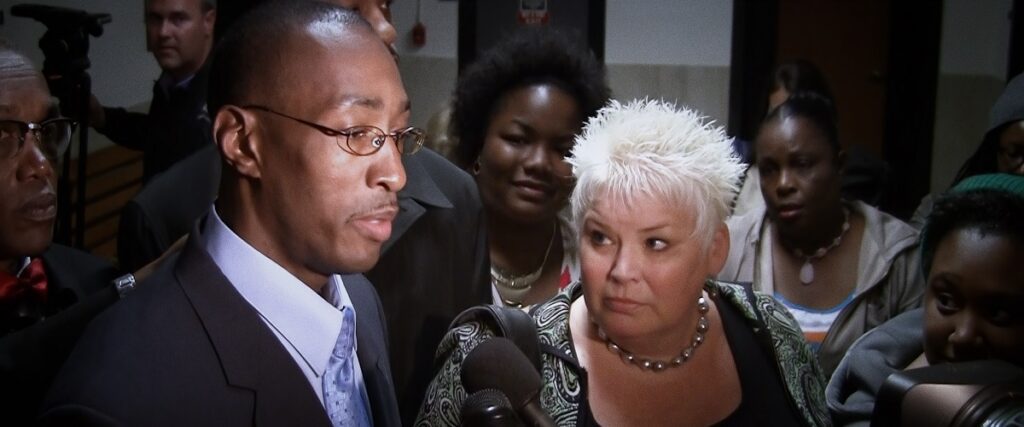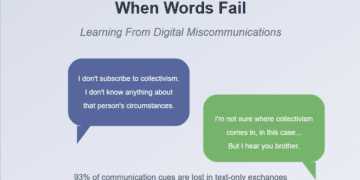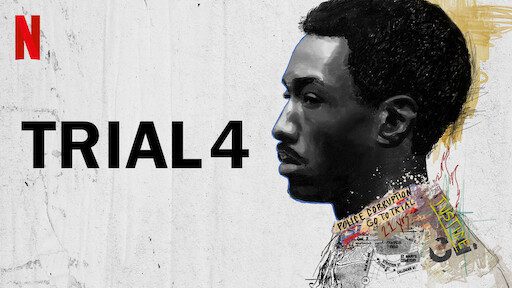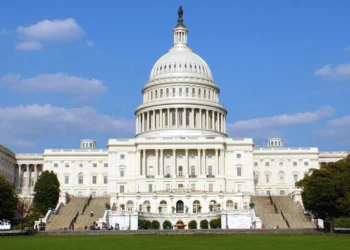In the gripping Netflix documentary series “Trial 4,” the story of Sean Ellis, a young Black man wrongly convicted of murdering a Boston police officer, unfolds in heart-wrenching detail. This compelling series sheds light on the systemic failures and potential corruption within the justice system, leaving viewers questioning the very institutions meant to protect and serve.
The Saga of Sean Ellis: A Life Derailed by Police Misconduct
At the tender age of 19, Sean Ellis found himself at the center of a murder investigation that would forever alter the course of his life. Despite a lack of concrete evidence, the Boston Police Department seemed determined to pin the crime on Ellis, setting in motion a nightmarish ordeal that would span decades.
| Key Figures | Role in the Case |
|---|---|
| Sean Ellis | Wrongfully convicted of murder |
| Rosemary Scapicchio | Ellis’s dedicated lawyer |
| John Mulligan | Boston police officer murdered in 1993 |
Through powerful interviews with Ellis, his unwavering lawyer Rosemary Scapicchio, and other central figures, “Trial 4” paints a vivid picture of a justice system that failed an innocent man. The series meticulously details the twists and turns of Ellis’s case, exposing the potential for police misconduct and the reluctance of those in power to admit wrongdoing.
Shining a Light on Systemic Racism in Policing
One of the most unsettling aspects of Ellis’s story is the role that race played in his conviction. As a young Black man, Ellis was subjected to racial bias and prejudice at every turn, from his initial interactions with police to his trials and subsequent incarceration.
“The reality is that if Sean had been white, he would not have been convicted. Race played a huge role in this case.” – Rosemary Scapicchio, Sean Ellis’s lawyer
“Trial 4” forces viewers to confront the uncomfortable truth that racism is deeply entrenched in the American justice system. The series highlights the disparities in how police treat suspects based on the color of their skin, and how these biases can lead to devastating consequences for innocent individuals like Sean Ellis.
The Fight for Justice: Exposing Police Corruption
As “Trial 4” delves deeper into the investigation of Officer Mulligan’s murder, disturbing questions arise about the conduct of the Boston Police Department. The series presents compelling evidence suggesting that police officers may have tampered with evidence and engaged in other forms of misconduct to secure Ellis’s conviction.

The reluctance of the District Attorney’s office to re-examine Ellis’s case, despite mounting doubt about his guilt, adds another layer of frustration to an already maddening story. “Trial 4” exposes the lengths to which those in power will go to avoid admitting fault, even when an innocent man’s life hangs in the balance.
The Human Cost of a Flawed System
At its core, “Trial 4” is a story about the human toll of a broken justice system. Through Sean Ellis’s eyes, we witness the devastating impact of wrongful conviction – the years lost, the relationships strained, and the mental and emotional anguish endured.
Yet, amidst the darkness, there are glimmers of hope. The unwavering dedication of Ellis’s lawyer, Rosemary Scapicchio, and the support of his family and community serve as a reminder that even in the face of overwhelming adversity, the human spirit can persevere.
A Call to Action: Reforming Police Practices and the Justice System
“Trial 4” is more than just a compelling true-crime documentary – it’s a call to action. The series shines a harsh light on the systemic failures within policing and the broader justice system, urging viewers to demand change.
From implementing stricter oversight of police conduct to addressing the racial biases that permeate every level of the justice system, “Trial 4” makes a powerful case for reform. It’s a reminder that until we confront these deep-seated issues head-on, innocent lives will continue to be destroyed, and the promise of justice for all will remain unfulfilled.
Bottom Line
“Trial 4” is a haunting exploration of the human cost of a flawed justice system. Through the story of Sean Ellis, the series exposes the dark underbelly of policing, the insidious nature of systemic racism, and the urgent need for reform.
It’s not an easy watch, but it’s an essential one. By shedding light on these uncomfortable truths, “Trial 4” challenges us to confront the injustices that plague our society and to work towards building a more equitable and just future for all.
For more information on wrongful convictions and police misconduct, visit the Innocence Project and the National Police Accountability Project.
For more content, check out the following:
- The Thin Blue Lie: Why Police Deception Demands Distrust
- The Police Are Not Your Friends – How Law Enforcement Lies and Manipulates to Get Convictions
- Why You Should Never Talk to the Police Without a Lawyer Present
Note: The views expressed in this blog post are the author’s personal opinions.
















































